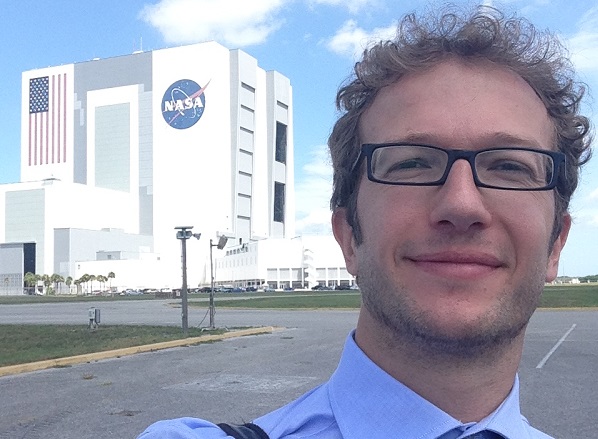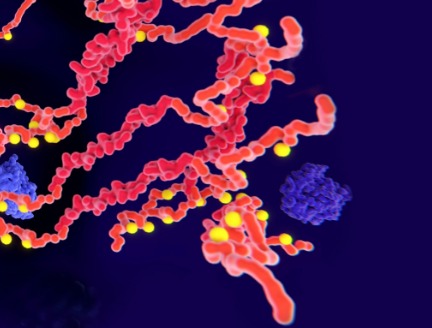


Precision Medicine
Nano Doses Delivered in Space
Study explores potential biomedical applications at the ISS
Nanomedicine researchers from Houston Methodist are working with Automobili Lamborghini to test carbon fiber samples (shown below) on the International Space Station in low-Earth orbit conditions.
Houston Methodist researchers are studying Italian sports car maker Automobili Lamborghini’s carbon fiber materials in space. The research payload, launched on Nov. 20 to the International Space Station (ISS), is part of a collaborative project involving Houston Methodist Research Institute, Automobili Lamborghini and the ISS U.S. National Laboratory (ISS National Lab).
The six-month study aboard the ISS was designed to evaluate the ability of Lamborghini’s carbon fiber materials to withstand temperature fluctuations, radiation exposure (including ultraviolet and linear energy transfer), vacuum and atomic oxygen exposure.

Environmental conditions at low-Earth orbit allow us to evaluate the properties and robustness of the carbon fiber materials under extreme conditions. This is a unique environment to learn more about their properties and characteristics, in the hope of one day developing technologies and devices that could be used on Earth and in space.
Alessandro Grattoni, PhD
Frank J. and Jean Raymond Centennial Chair
Chair and Professor, Department of Nanomedicine
Houston Methodist
Alessandro Grattoni, PhD, who heads the Center for Space Nanomedicine at Houston Methodist Research Institute, began sending select research projects to the ISS in 2015. The center’s focus is on nanotechnology-based therapeutics, biomedical devices for precision medicine, regenerative medicine and tissue engineering. The Lamborghini project is the fourth of 10 experiments from Grattoni’s lab scheduled for the ISS over the next several years.
For the past 12 years, Grattoni’s work has focused on implantable nanochannel platforms to control the delivery of therapies for a variety of chronic medical needs, including HIV-prevention, muscle atrophy, obesity and cancer. Grattoni is already collaborating with Lamborghini on another project to study the biocompatibility of the automaker’s proprietary carbon fiber composites for implantable devices. Understanding the durability of Lamborghini’s proprietary material in accelerated and extreme environmental conditions in space could help future research efforts for biomedical technologies beyond drug-delivery devices, such as in prostheses and in dental and orthopedic implants.
Photo of carbon fiber samples and MP4 video file available courtesy of the ISS National Lab.
“Compared to conventional materials, Lamborghini’s carbon fiber composites could prove to be more durable at a fraction of the weight. If this study shows mechanical strength and robustness, I could see the possibility of additional applications within the aerospace industry.”
Lamborghini’s Advanced Composite Lightweight Structures Department of Research & Development is the carmaker’s unit focused on the research and production of carbon fiber composite materials in their vehicles.
The ISS National Lab works in cooperative agreement with NASA to launch research investigations to the orbiting laboratory that have the capacity to benefit life on Earth through space-based inquiry. Future Houston Methodist experiments scheduled for launch to the ISS include an implantable nanochannel drug-delivery device that will be remotely controlled on Earth, as well as a platform for the controlled delivery of therapeutics for osteoporosis prevention and treatment.
Gale Smith, October 2019








